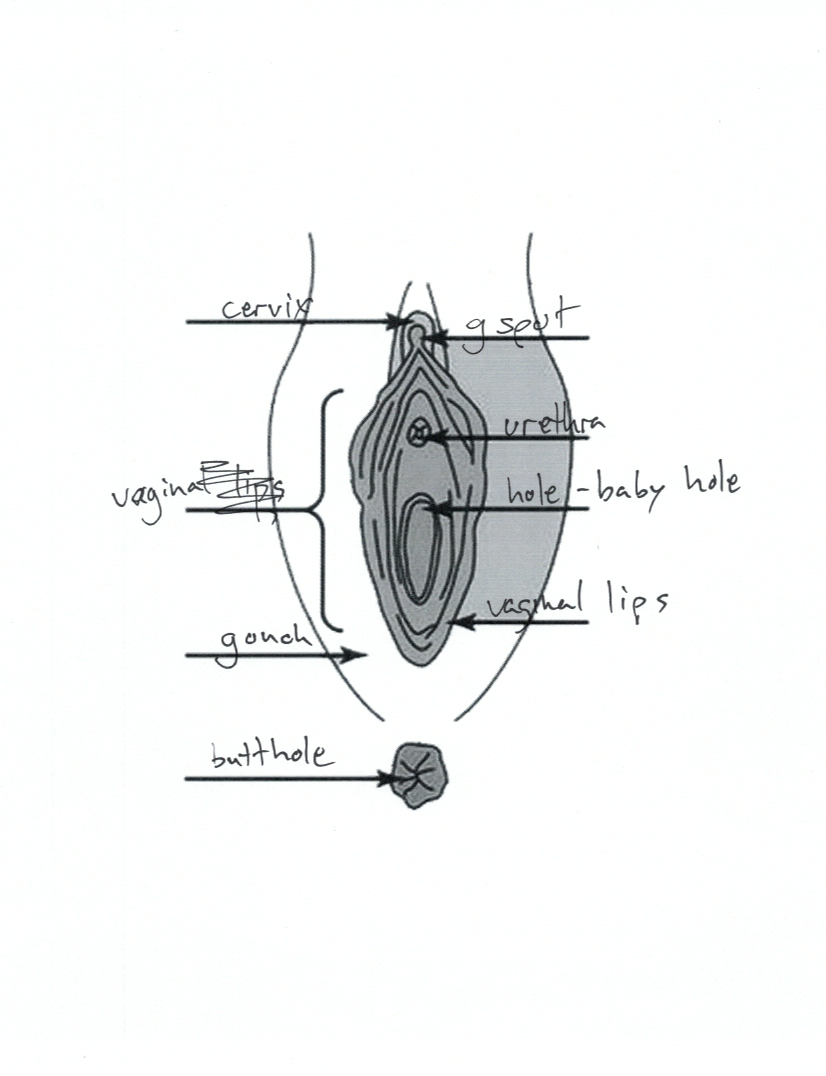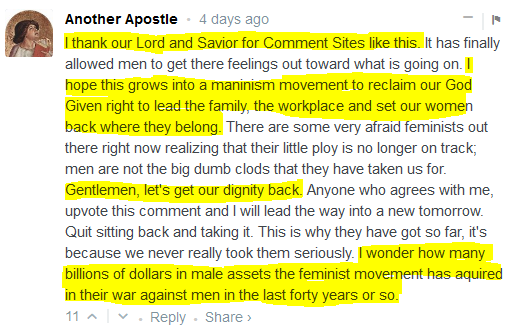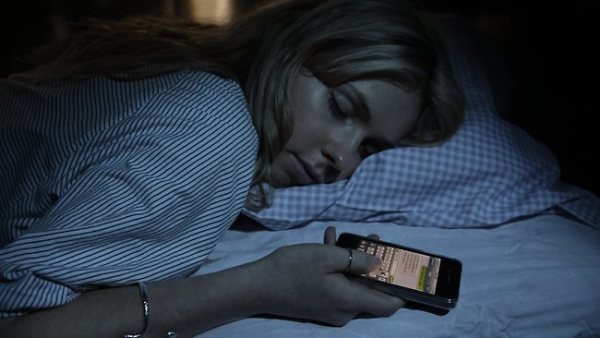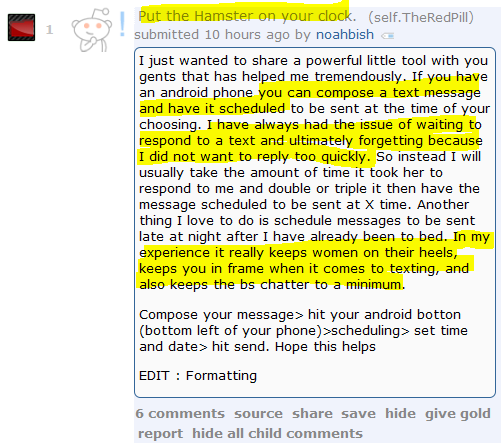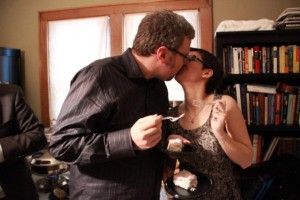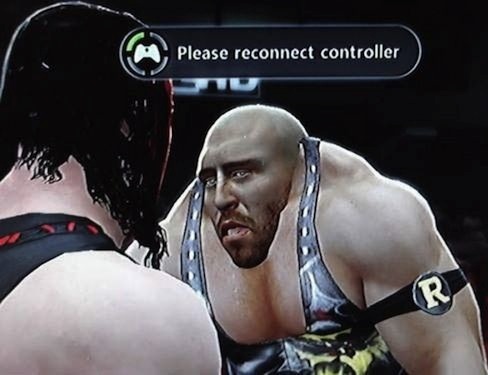Ruby lost her virginity in July of this year, not long after she turned 28. Five days later, she knew, with deep certainty and not a little dread, that she was pregnant. Her nipples grew and darkened, she says; her abdomen tingled. The man she'd slept with refused to see her, and when he finally agreed to meet up, he insisted on buying the morning-after pill. She refused to take it, and they didn't talk much after that.
Soon after, Ruby started seeing doctors, one after another. A curious pattern quickly emerged: No one but her could see the fetus.
Ruby spent the first few months of her pregnancy shuttling back and forth between her parents' house in her hometown and New York, hoping to move to the city for good. She underwent at least two ultrasounds between July and October, one at Mount Sinai Hospital in New York and one at a facility in her hometown. (To protect her privacy, Jezebel is identifying Ruby by a pseudonym, and omitting some details that could potentially identify her.) Multiple blood and urine tests also came back negative for pregnancy.
But Ruby knew something was there, and as her stomach started to swell, she only became more certain. She felt a stretching sensation in her vagina and occasional, fluttering contractions in her uterus. She grew increasingly frustrated and desperate as all the test results continued to be, in her mind, inconclusive. She made an appointment with a specialist on the Upper East Side who she hoped might be able to tell her what was happening. But then, on the night of October 8, she walked into the emergency room of NYU Langone Medical Center. She wanted another ultrasound. She couldn't wait.
The ultrasound technician there didn't see a baby either. Ruby thought his scan had been far too brief to show anything. Things grew tense, and something happened between them. Ruby calls it an argument; the hospital, citing medical privacy laws, declined to comment.
After a little verbal tussling, Ruby says, the ultrasound technician told her she would be taken to see an OB-GYN, who would examine her further. Instead, she was taken into a psychiatric seclusion room and held down by four male orderlies, one pinning each of her limbs. She was given injections of Ativan, an anti-anxiety drug, and Zyprexa, an antipsychotic. She screamed, thrashed, and finally, defeated and sleepy from the medication, fell asleep. When she woke up, she was in a locked ward at Bellevue Hospital's psychiatric center. (This is Ruby's own recollection of events, but the fact that she was physically restrained in the emergency room is also backed up by court testimony given by her psychiatrist.)
Ten days later, Ruby sat at a table in the visitation room on her ward, her eyes welling up with tears behind her glasses. She's very tall and extremely thin, with long arms, dark hair pulled back in a long, low ponytail and thick eyebrows. She wore a black long-sleeved top and slacks, with a green sleeveless dress layered over them. The sleeves of the top were rolled up, revealing a row of thin white self-harm scars on her left arm.
"I shouldn't be here," she told me, her voice cracking. "This is horrendous. I'm just contained in here."
Ruby talked fast, smoothing her hair back and fixing her glasses whenever her thoughts started to race. She held a pile of papers: printouts from her ultrasounds, material on rare pregnancy disorders with handwritten notes in the margins. "I never go on YouTube," one of them read. John, an on-again, off-again boyfriend she'd met through OKCupid last year, sat across the table from her, looking pained. (John is not the man she believes impregnated her. His name has also been changed.) He'd brought her a piece of pizza, but she was too agitated to eat much.
At Ruby's request, John had sent out a series of frantic emails to media outlets over the previous week. The one Jezebel received was titled "Possible Story About Bellevue Hospital Corruption." It read, in part:
[Ruby] wound up in the Bellevue Psychiatric Ward, because of a ultrasounds technicians decision to commit her to the ward because of his displeasure with her attitude and argument that she was pregnant and it was undetectable because of a rare but not impossible uterus abnormality, technically called a retroflex uterus, that he was not aware of even being possible. I will send some pictures of her ultrasounds that you can look at for yourself. They contain what appear to possibly be a fetus in a fetal position with the cranium and feet.
He included ultrasound photos, which he'd also posted on Craigslist, asking for feedback.
Ruby had refused medication for the first two weeks of her stay at Bellevue, but her psychiatrist had recently won a court order to medicate her against her will. The regimen had started just moments before she'd walked into the visitation room.
"They just gave me my first dose of Depakote, and I can feel it burning my brain cells," she said, clutching her head. "Pregnant women should not be taking this. It's lethal for a fetus."
Depakote is a mood stabilizer and anti-epileptic, typically used to treat seizures, bipolar disorder or migraines. In Ruby's case, she says, they told her it was intended to treat her schizoaffective disorder, which she doesn't believe she has. She was diagnosed with Asperger's Syndrome as a teenager, and while she accepts that she is autistic, she was adamant that she wasn't delusional or psychotic. She was just pregnant. She was sure of it. In the visitation room that day, she raised her dress and showed me her stomach.
Resting there, standing out in sharp relief against her thin body, was a bulge the size of a cantaloupe.
"This wasn't planned," she said, lowering her dress. "But I'm totally—" She stopped, frustrated, her eyes welling up. After a moment, she took a deep breath and began again. "There's no reason for them to be doing this. I should have full power and control to make reproductive decisions for myself. I do not want something taken from me, to kill a living being."
There was no one she could call, she said. No one except John was even taking her calls or coming to visit. She's not in regular contact with her family, she said. "I don't have friends I can count on." Her eyes filled with fresh tears. "If I did, I wouldn't be here. They wouldn't let this happen to me."
II.
Although they're increasingly rare in the United States, pregnancies rooted in the mind but entirely absent from the body do happen. Victorian-era doctors referred to them as "hysterical pregnancies." Today, the favored terms are "delusional pregnancy," "false pregnancy" or "phantom pregnancy." When a patient suffers from some or all the symptoms of pregnancy— stomach growth, cramps, loss of period, morning sickness—without a fetus actually being present, it's known as pseudocyesis. Occasionally, this condition has even fooled doctors: in 2010, two North Carolina doctors were formally reprimanded after they performed a C-section on a woman, only to find there was no baby at all. The same thing reportedly happened in Rio de Janeiro in 2013.
The division between the physiological and psychological aspects of this syndrome isn't always clear. Pseudocyesis and false pregnancy, once seen as two starkly different diseases, can more correctly be viewed on a spectrum, says Dr. Mary Seeman, a professor emerita of psychiatry at the University of Toronto.
"The line is blurred and one slides into the other," she explains. She went on:
Essentially, the word 'delusional' means the person is ill with a psychiatric disorder of some kind. But pseudocyesis can occur without any psychiatric illness: you can believe that you're pregnant and have signs of pregnancy for any number of reasons. Certain drugs will do it. There have been cases reported where a woman gains weight, starts having other signs like nausea and she starts believing she's pregnant—but she's not mentally ill and she never has been, other than this one area. And so she'll have some trouble being convinced she's not pregnant.
Pseudocyesis and false pregnancies have both appeared in medical literature for thousands of years. Hippocrates claimed to have encountered 12 women suffering from pseudocyesis sometime around 300 B.C.E. Mary Tudor, the 16th-century queen of France, is thought to have had at least one false pregnancy. McGill University professor Jackie Rosenhek writes that Mary was "pregnant" for 11 long months, with no sign of a child.
"As the weeks dragged on with no news of a royal baby, people began to wonder," Ronsehek writes. "Whispers circulated that the queen had been seen curled up with her knees tucked in, which wasn't exactly possible for an overdue mother-to-be. Eventually, few people thought that Mary had ever been pregnant. One dubious courtier mocked her outright, saying that the Queen's pregnancy would 'end in wind rather than anything else.'"
Mary eventually issued a decree stating that God wouldn't allow her child to be born until a crop of Protestant dissenters were properly punished (in other words, executed). But even after that, Rosenhek writes, no baby came:
In August, in the 11th month of her false pregnancy, Mary emerged from her confinement chamber at last. She was impossibly thin, utterly silent and completely humiliated. No word of her "pregnancy" was mentioned at court again, at least officially. Her political rivals rejoiced, relishing in the entire situation as a sign of weakness and divine retribution.
Mary died the following year, still childless.
During China's Qing dynasty, around 1644, gynecological texts referred routinely to Ghost Fetus, just one of many types of false pregnancy they recognized. Yi-Li Wu, a professor of Asian history at Albion College, writes that ghost fetuses "were originally explained as the product of human-ghost intercourse." Later, they were attributed to "excessive female emotion."
Men can suffer from false pregnancy, and so can animals; dogs and pandas seem especially susceptible to the disorder. A six-year-old giant panda named Ai Hin who lived in the Chengdu Giant Panda Breeding Research Center in China started showing all the signs of pregnancy back in August, thrilling her keepers. (Pandas notoriously have trouble mating, getting pregnant and giving birth; at least one zoo has produced and screened panda porn to encourage them, which didn't work.) But plans to live broadcast the baby panda's birth were called off when officials at the center realized that Ai Hin was either suffering from a delusional pregnancy or else deliberately pretending to be pregnant, because she was canny enough to know her "condition" resulted in nicer living quarters and more food.
In humans, delusional and false pregnancies and pseudocyesis were relatively hard to spot for hundreds of years. A truly reliable pregnancy test wasn't developed until 1960, and over-the-counter tests weren't available until 1976. After that, in countries with strong medical frameworks, cases of false pregnancy dropped precipitously. In North America, they're now believed to happen about one to six times for every 22,000 real pregnancies, according to a study published in 1982 (seemingly one of the few that has tried to figure out how common the condition really is; there's a consensus that it's fairly rare, albeit slightly more common people already suffering from other types of psychosis or mental illnesses.)
Still, though, there have been a few notable cases in recent decades, including Ms. U, a British woman who looks to have had the longest delusional pregnancy in medical literature. She believed she was with child for almost 10 years, pretty much continuously.
Ms. U's treating psychiatrists found a dense nest of conflicting emotions that they thought might have contributed to her condition. She was raped by a classmate at 14, not long after she'd been traumatized by a particularly brutal sex education class, one that left her with a paralyzing fear of babies, sex, and childbirth. Ms. U first started to think she was pregnant when she was 22, newly married to a man who refused to wear a condom during sex. She started to complain that she "felt something" in her lower abdomen, and although she and her husband split up after just a few months, the feeling in her stomach waxed and waned for the next decade. Other symptoms of pregnancy seemed to appear and disappear: painful breasts, no period, a swollen belly.
Ms. U, writes Karel De Pauw, the psychiatrist who worked with her last, was admitted for inpatient psychiatric treatment on four occasions. Every time she was admitted, she escaped, repeatedly showing up at various emergency rooms, doctor's offices and pharmacies, demanding an abortion. She was frequently loud and agitated when hospitalized; De Pauw writes, dispassionately, that "her screaming [disturbed] the whole ward."
De Pauw say that he managed to cure Ms. U for good with a large dose of pimozide, an antipsychotic. She was able to accept that she had never been pregnant and mark her symptoms down to anxiety. She went on to become a secretary, living in an apartment of her own. It's unknown if she ever remarried or had children.
These days, false pregnancies are still fairly common in places with less-developed health care networks, like parts of Nigeria and India: one study estimates that one in 160 pregnancies in Nigeria are delusional. Dr. Mary Seeman, the University of Toronto professor, reviewed the medical literature from 2000 to 2014 and found just 80 cases in North America. She and several other academics attribute the prevalence of pseudocyesis in some countries to both the lack of health care, as well as the strong social emphasis that's placed on pregnancy and motherhood.
"There's such a pressure on women to get pregnant," Seeman says. "So much depends on it. There's such a high stake in having babies, especially boy babies. They want so very much to be pregnant that they'll interpret anything as a sign. Also, they're treated much better when they're pregnant."
Patients in Nigerian and Indian case studies are usually depicted as desperately wanting to be mothers, but there's more uncertainty in North American cases. Seeman has come to see pseudocyesis and delusional pregnancy in Canada and the U.S. as the product of incredible ambivalence about pregnancy and childbirth. "There's either a huge wish to be pregnant or a huge fear," she says.
Depakote, the anti-psychotic that Ruby was placed on at Bellevue, can be used to treat delusions, Seeman says. But when it comes to a delusional pregnancies, Depakote and other anti-psychotics can have some odd, rather counter-intuitive side effects.
"The medications that are used to treat a psychotic illness, they can make a patient put on weight, make your breasts swell, often bring milk to your breasts," Seeman says. They can also cause menstrual periods to cease. All that is particularly true of Depakote, which can drastically increase prolactin levels, the hormone that increases milk production. (Ruby may not have been taking any of these medications long enough to see a rise in prolactin levels.)
"Depakote can cause all these signs of pregnancy that could only reinforce the delusions," Seeman says. "This is the paradox of it."
III.
From the moment she walked into NYU's emergency room, Ruby was insistent that she wasn't delusional or psychotic. But the emergency room staff, as well as her new psychiatrist at Bellevue, Dr. David Nardacci, thought otherwise. On October 10, two days after she walked in asking for an ultrasound, she was involuntarily admitted to the hospital on an emergency basis. Under New York state's mental health laws, an adult can only be involuntarily admitted if "the person has a mental illness which is likely to result in serious harm to self or others and for which immediate observation, care and treatment in a psychiatric center is appropriate."
It's worth noting that Ruby visited numerous other doctors and emergency departments in her quest to get what she saw as an accurate ultrasound, yet Bellevue was the only hospital that took this route. The hospital wouldn't comment on what their specific criteria are for deciding an adult needs to be involuntarily admitted, but a few things about Ruby may have factored into their decision: her agitated state, the visible self-harm scars on her arm, her autism, and a previous involuntary stay in a psychiatric ward in 2013. Hospital staff may have also been troubled by the fact that Ruby had recently gone through a bout of homelessness: she'd been planning on subletting a room in Greenpoint, but it fell through, and she ended up at a shelter for two days. Her housing situation was unresolved when she went to the ER.
Ruby didn't want to elaborate much on what had sent her to the hospital in 2013. But she said she'd learned the only way to get out of the hospital was to simply agree with everything the doctor said. "You have to express complete compliance," she said. This time, though, she wasn't ready to do that—not with her potential baby's life at stake.
Although Ruby had said she wasn't in regular contact with her family, according to John, her mother did visit at least once during her stay at Bellevue, bringing her what Ruby interpreted as maternity clothes. (Ruby's mother declined to comment for this story, telling Jezebel in a brief phone call that she found our contacting her and reporting on her daughter's situation to be "highly offensive.")
Ruby's condition didn't much improve after 10 days in Bellevue, during which time she says she didn't see an OB-GYN, but was assigned a social worker, whom she met with only once. She also saw another patient's penis, which he pulled out as they both sat in the empty visitation room. A nurse helped shoo him out, but, Ruby says, wouldn't take her claims of sexual assault seriously.
Ruby wanted to leave immediately, but her doctors didn't find think it was safe. Every patient in New York has a right to a court hearing if they believe they're being held improperly, and the New York State Supreme Court has a courtroom on the 19th floor of Bellevue to hear mental health cases. Ruby got in touch with the state's Mental Hygiene Legal Services office and was assigned a lawyer, Kent Mackzum. (Mackzum declined to speak on the record for this story.) Two weeks into her stay, Mackzum and Ruby faced off there against her psychiatrist, David Nardacci, who had a host of reasons why Ruby needed to stay.
In his petition to the court, Nardacci wrote that Ruby was "markedly motor agitated, anxious and irritable." He continued:
Although she has had multiple negative urine, blood and ultrasound studies, she is insistent that she is pregnant, on the basis of her own review of her ultrasound exams. She is in disagreement with the professionals who reviewed her labs and ultrasounds, although she has no medical training. She is self-taught via YouTube and the Internet. In my opinion, medication over objection is in the patient's best interests.
The judge agreed, and Ruby was ordered to remain under a two-week hold.
Ruby had several theories for what might be happening, which she alternated between at different times during her stay at Bellevue. Underpinning all of them was her belief that she has a fairly rare syndrome, a retroflexed uterus, that was complicating the diagnosis. If that were true, it would mean that her uterus was tipped back towards her spine. (In court testimony, her psychiatrist said her medical team does not believe she has that condition.) Her first theory was that she had been pregnant in the recent past, and what she was seeing and feeling was a fetal skeleton. The second was the she had what's known as a dermoid tumor, which can grow hair and teeth, and sometimes resemble a fetus on an ultrasound. Her third, slightly contradictory theory—which she didn't like to talk about, knowing how it sounded to other people—was that she was pregnant with twins.
"There originally were two fetuses on the ultrasound," she said, in Bellevue's visitation room, two weeks into her stay and, as she estimated, about 14 weeks into her pregnancy. "I'm still seeing that, but only one image is clear."
Jezebel asked three OB-GYNs, including one who specializes in high-risk pregnancies, to look at several printouts of Ruby's most recent ultrasounds, with her name redacted to protect her privacy. None of them saw anything they could interpret as a fetus or fetuses.
"That's not twins," one responded. "The uterus looks enlarged, i.e. the wall looks thick. Fibroids or adenomyosis maybe. Has a little bit of tissue in the center. I can't tell what the tissue is, but it doesn't look fetal."
"It's really hard to read an ultrasound based on one image," wrote the high-risk OB. "However, I don't see anything there that looks like a gestational sac."
The OB-GYNs said that it's virtually impossible that a pregnant person could have multiple negative blood and urine tests. Ruby discounts that by theorizing that she's experiencing a rare syndrome known as the Hook Effect or Hook-like Effect, which can cause negative urine tests in early pregnancy. She flatly rejects the idea that she's delusional or that she could have pseudocyesis. She doesn't really believe in the syndrome.
"I truly do not believe that is the case," she says. "It's a misogynistic idea that's slapped on people." And the idea that false pregnancy arises from some deep ambivalence about motherhood just doesn't apply to her, she points out. "I have no reason to want this pregnancy, given how long I've known this person, what I have else going on in my life. I didn't want or plan for this."
The OB-GYNS Jezebel spoke to all said that in order to have a clearer idea of what's going on in the ultrasound, they'd want to see the written ultrasound report that usually accompanies it. But Ruby said that report too, was "flawed."
"What I really need is a radiologist to look at this," she said. "Anybody in their right mind would look at these images and think…" She trailed off.
Ruby never got defensive or angry when I asked her if she thought she might be experiencing a pregnancy delusion, which I did several times over the course of our conversations. She seemed to anticipate not being believed, and she responded, patiently and politely, with more theories, more studies, more Google search results. Ruby had theories for everything: the negative pregnancy tests, the lack of clarity on the ultrasounds and, most especially, why none of the doctors who had seen her thought she was pregnant. All of it seemed to stem from her previous experiences with the medical establishment, a lifetime of having her opinions discounted.
"They don't want to admit these tests aren't foolproof," she said. "There are definitely people they're not accurate for, and it's just absurd that all these doctors I'm going to have never heard of this."
She recognized that she didn't have medical training, but added, "When I research something, I get really, really into it."
At least one doctor I spoke to also questioned the wisdom of involuntarily committing Ruby. "The question is what legal and medical grounds they're using to hold her there," the doctor wrote. "An involuntary psych hold has very clear criteria. And a fixed delusion shouldn't be enough."
"Delusions are very difficult to treat," says Dr. Catherne Birndorf, a psychiatrist who specializes in reproductive issues. (Birndorf was speaking generally; she hasn't treated Ruby and has only seen one case of pseudocyesis, years ago, during her residency.) "With any delusion, it's a very firmly held belief. It's not like you can talk anybody out of it. You can present all the rational evidence you want and it doesn't matter."
She added that this presents a particular problem for a psychiatrist or a therapist trying to treat a delusional patient. "You never try and talk somebody out of a delusion. By doing that, you essentially lose their alliance with them. But you don't want to collude with a delusion either—you don't want to be like, 'I see the Martian too.' Nor do you want to lose your treatment relationship with them. You can say, 'I don't exactly see it the same way, but I know you feel that way.'"
Nor is a pregnancy delusion—or any other delusion, for that matter—really treatable with medication: "Usually you try antipsychotic medications. The one that's famous for working in these is pimozide." This is the drug Ms. U was supposedly cured with, which is marketed today under the brand name Orap. But generally, she says, "it doesn't work."
Does anything—any medication, any type of therapy, any combination of the two—reliably work to cure pregnancy delusions?
Birndorf pauses, thinks about it.
"Not... so much," she says.
IV.
On November 3, two weeks after the court ruled against her, after she'd been at Bellevue nearly a month, Ruby had a chance at a "do-over" hearing to get out. This time her case would be tried by a different judge. She was brought down from her ward around 11 a.m., where John was waiting, clutching her coat, her phone, and some mac and cheese he made that morning. Neither thought it was likely she'd be allowed to leave that day, but he wanted to be prepared just in case.
John wasn't sure if Ruby was pregnant. He'd started out believing fully, but as time went on and her negative pregnancy tests kept rolling in, he was unsure.
"She was definitely preoccupied with this," he says. Just talking about Ruby outside her presence seemed to make him feel a little guilty. "I think there's a 95 percent chance she's not pregnant, but that five percent is gnawing at me." He said the same thing several times in several different ways as he waited for her to arrive: "I just need to be sure." He clutched a sheaf of papers, the email results from when he'd put her ultrasounds on Craigslist.
"You are definitely pregnant," the top email read. "Please see a doctor soon."
The scene as John waited for her was chaotic: a waiting room for patients was full of people waiting to see the judge, most of them black men, ranging in age anywhere from 20 to 60. The sole woman in the room was a round, pale girl who didn't look much older than 20, pacing around and practicing her speech for the judge: "Your honor, I need to be in therapy while I experience life, not locked away…" Two hospital employees kept a wary eye on her.
When Ruby appeared, she was nervous as a cat, barely able to greet John or meet his eyes. She wore a grab-bag outfit indicative of the haphazardness of psychiatric care: sweatpants much too large for her slender frame, bagging down around her hips, pink and blue sweaters layered one on top of the other, and shiny black patent leather shoes with a leopard pattern on the toes.
"Do you have the print-outs?" she asked John. She wanted to show the judge her ultrasounds, although her lawyer was advising against it; he wanted to focus instead on her competence, the fact that she wasn't a danger to herself or anyone else.
"He said he didn't want to focus on that," John said gently.
"Just in case," Ruby said, urgently. "It's important to me." He nodded and handed them over.
"You can just focus on that when you get out," John said, referring to the pregnancy. She looked at him sharply.
"What are you saying?" she asked. He changed the subject and handed her the mac and cheese. I tried to ask how the last two weeks had gone, but she couldn't respond, starting a thought and then stuttering to a stop. She paced. The round pale girl from the waiting room paced too, the two of them occasionally coming to a near-collision in the hallway. They kept eyeing each other, shyly.
"How long have you been in?" the short girl asked, finally.
"28 days," Ruby replied, her voice almost cracking. "It's horrible."
"It's horrible," the girl agreed. They smiled awkwardly at each other.
"At least you know you're going to get out," the girl added, bitterly. "They're trying to send me to a state hospital."
At that moment, Ruby and her lawyer were called into court, with John trailing close behind. Her psychiatrist, David Nardacci, was the hospital's first and only witness, soft-spoken, in a dark grey plaid suit, with deep acne scars lining his cheeks. He mostly addressed his comments to the judge, Arthur Engoron, a man with mad scientist white hair and a cheery demeanor. He kept his eyes firmly away from Ruby. Treating her, he said, had been a challenge.
"She has two psychiatric diagnoses," he explained. "Schizoaffective disorder and Asperger's syndrome. The combination of these two diagnoses in particular has made it harder to treat her, and placed her at higher risk." The medications were beginning to work, he said, "but I don't believe she's fully responsive to the extent that she's ready to be released into the community."
In particular, he said, he questioned her insight into her situation. "Ms. [Ruby] is in the hospital because she became very preoccupied with a delusional pregnancy," he said. "She had sexual relations in July and within nine days became obsessed by the idea of being pregnant. She went to different providers in New York and got at least a half dozen ultrasounds. She was becoming increasingly frantic."
"Did she want to be pregnant or not?" Engoron asked, his brows knitted.
"That was never entirely clear," Nardacci responded, without looking at his patient, who was violently shaking her head. "She's preoccupied with misdiagnosis." But in either case, he added, "Her obsession with this delusional pregnancy became so intense it erased all the other activities in her life." In the NYU emergency room, he said, she became "highly agitated, requiring restraints." She'd since undergone another ultrasound and another set of blood and urine tests, all of them negative.
Ruby raised her hand. Her lawyer shot her a look and she put it down, reluctantly.
But according to Nardacci, Ruby's ultrasounds weren't normal either. They had given her treatment team some cause for concern. The ultrasounds showed a possible enlargement of her left ovary, possibly consistent with cysts or endometriosis. Ruby, he said, believed that they were seeing a fetal skeleton. The whole thing warranted further investigation, requiring a transvaginal ultrasound, an invasive procedure that he didn't feel she was ready for.
"She was only able to tolerate a limited study," he said. Because of her Asperger's, he said, "she's extremely uncomfortable being touched." With a few more days of treatment, he said, "we believe she'll be able to tolerate a full ultrasound exam and a full gynecological exam."
"Does she still believe she's pregnant?" the judge asked.
"I believe she's beginning to entertain other alternatives," Nardacci answered.
Mackzum, Ruby's lawyer, asked Nardacci whether he really believed she was being treated in the "least restrictive" setting possible, the standard under New York's mental health laws.
"I believe she is," he replied. "She doesn't believe she's mentally ill. She'll only accept certain diagnoses. She believes if she had just the right doctor or the right test she'd be able to convince someone she's pregnant." And as long as she still believed she might be pregnant, he said, "she's not fully committed to taking her medications." She didn't even seem fully aware of what having a baby might mean, so fixated was she on the pregnancy itself, he said. "I do not believe she's stable." With more treatment, he said, "I think we have the opportunity to receive closure."
Mackzum pointed out that Ruby had traveled back and forth easily between her parents' home and New York over the past few months, and that she'd taken care of basic physical needs like food and clothing. At Bellevue, she hadn't assaulted or threatened anyone. And both sides agreed that if Ruby were released, Bellevue would still provide follow-up testing and treatment, if she wanted it.
Judge Engoron tipped back in his chair and thought for a long moment.
"I'm ordering her released," he said finally. "I just don't see the danger. Not believing a doctor? Going to another doctor? I just… don't see the danger there."
It took Ruby a moment to register what had happened. "Oh my God," she cried, when it sank in. She beamed and hugged her lawyer, looking near tears as they left the courtroom. She and John headed up to her unit, where she gathered her things and was gone within an hour.
Ruby had a lot to do, she said. She wanted to see whether the specialist on the Upper East Side might be able to see her this week. She swore that would be the last doctor. "If she doesn't see anything, I wouldn't have any other choice but to let it go."
She got her appointment, not with the specialist, who didn't do second opinions, but with someone the doctor referred her to. But Ruby found, again, that it was too hard for her to wait. One morning several weeks ago, she walked into an urgent care facility in Brooklyn asking for an ultrasound. They didn't have a machine, she says, "but the doctor looked at the picture and said it could be an ectopic pregnancy."
It was enough to give her some hope. That, she said, and the fact that a few people had recently given up their seats for her on the subway, which she interpreted as a sign that she was beginning to show: "I'm happy to know it's not just me who sees it anymore."
She held onto that hope even after finally seeing the next doctor, who proved to be a disappointment.
"It took a total of two minutes," she told me by text. "I was given wrong information. He's not a specialist, just a normal OB-GYN. And he was indeed very rude, like the reviews said and I feared. He shook his head when I said that it is possible to have negative tests and be pregnant, and said 'Not possible.' He did not touch me for any kind of physical examination at all or do an ultrasound. I asked if he had heard of the Hook Effect and he said no."
As her weeks of freedom wound on, Ruby grew increasingly worried about this story being published, before, as she put it, "an actual expert in complex OB issues has been consulted," a concern she expressed several times.
"I have been prevented from seeing any specialist so far due to legal strictures," she told me at one point via text. "This isn't all about a sensational story and page-views. It's really useless if it's not going to be accurate. It's like writing about advanced calculus and using the input of kindergarten math teachers as the final word in it. It's not fair to me and it's not factual."
At the same time, her suspicions about her pregnancy grew darker and darker.
"It unfortunately looks to me like there are indeed twins," she wrote to me in a text message, shortly before seeing the disappointing not-specialist. "But they are anencephalic, meaning they have an early neural tube defect that caused their skulls to not close properly and the brain develops partially or mostly outside the skull and they're missing part of the head, etc." She continued:
Sorry if this is really weird and macabre. But I am just stating the facts. I know though that upon accurate diagnosis I will be able to expose Bellevue's wrongdoing, which is positive. I am upset the pregnancy was missed early because apparently these defects occur 27 to 28 days in, well after the medical attention I had already sought.
Two days later, she texted another ultrasound image, the clearest yet, she said. I didn't ask when she'd gotten it. "Deformed, probably anencephalic fetus lying like a doll across bottom," she texted, "Head at L."
I was curious about something Dr. Nardacci said in his court testimony, that his impression was that her preoccupation with the pregnancy was outweighing any thoughts she might have about actually having a child. I asked how she'd care for a severely disabled infant.
"Anencephalic babies unfortunately mostly cannot survive," she answered. She'd read studies, she said, rare cases where "their bodies can be kept alive and they have reflexes but no cognition." She felt that was the most likely case here. "It would be a miracle to have any baby come out alive and sentient in this case."
It struck me then that I didn't know Ruby very well. We'd spent weeks talking about her body, in highly intimate, embarrassing ways. But I still had little sense of her as a person, how she spent her time outside of doctor's offices. I'd looked at her Facebook profile early that week and found a funny, eccentric person, interested in live music and articles about autism.
I didn't see any of that, though. The woman I saw was buried under the weight of an obsession, growing increasingly more frustrated and desperate.
"What if you somehow had a healthy child?" I texted her. "Can you imagine parenting? Is that something you'd want to do someday?"
Her answer was guarded and tired-sounding. "Yes it is," she wrote. "I just am not letting myself hope in this case. It's not looking great."
A few weeks went by, and a few more disappointing doctor's visits, including one to a midwife, who Ruby had hoped might be more sensitive to her concerns, less dismissive. "They were useless," she said after. "They said if the radiologist didn't see a baby then there can't possibly be a baby."
Ruby has set up yet another appointment with a specialist in abnormal pregnancies. In the meantime, as she approaches what she believes to be her fifth month of pregnancy, she's been reading up more on anencephaly.
"I have gotten used to looking at pictures of babies with anencephaly while researching so it doesn't disturb me as much anymore," she wrote to me in a recent email. "I have gotten used to the idea that it's just not a survivable condition and at least they have peaceful times on earth while they're growing in the womb. They are usually deaf and blind, so I guess noise doesn't startle and hurt them."
Illustration by Jim Cooke.











